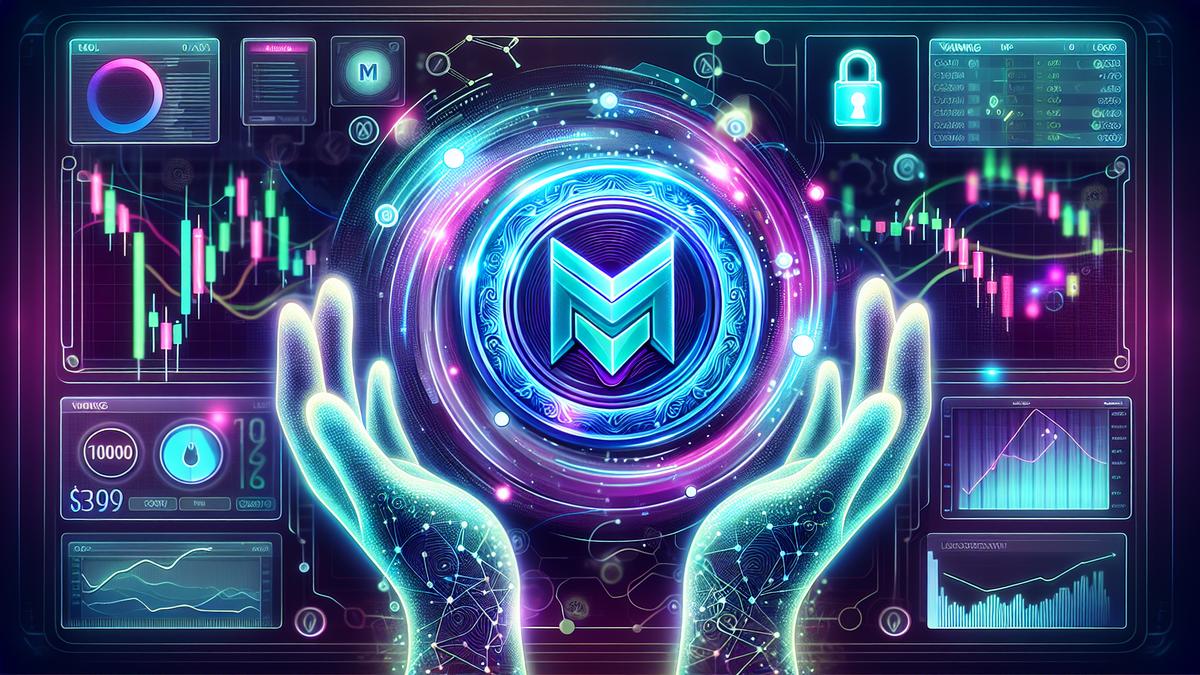Table of Contents
- The Situation
- TL;DR – Our Final Verdict
- Useful Links
- The Numbers Don’t Lie
- The Opportunity
- The Risks
- What People Are Saying
- How We Analyzed This
- Our Final Take
- Legal Disclaimer
The Situation
Alright, folks, gather ’round. mSOL is making waves in the crypto ocean, and it’s not just riding on its connection to the Solana blockchain. With dramatic trading volumes overshadowing its market cap and a presence on both popular and niche exchanges, mSOL is a token with serious hustle. But there’s a twist—some red flags are waving too. If you’re eyeing this coinbuster, here’s why you should keep your eyes peeled today.
TL;DR – Our Final Verdict
Hold your clicks, because mSOL is a mixed bag. On one hand, it’s got strong exchange listings and a decent crowd on Twitter, suggesting it’s not a ghost town. On the other hand, the token faces some heavyweight risks—like high holder concentration and the ominous potential for minting new tokens on a whim. Keeping its liquidity dynamics and institutional trading activity in mind, we advise: approach with caution. Watch it like a hawk, but maybe don’t throw in the life savings just yet. This one’s for the measured risk-taker.
Useful Links
The Numbers Don’t Lie
Let’s dive into the digits without dancing around them:
- Top 10 Holders: They control 54.85% of the supply. Not the most democratic of setups.
- Liquidity Ratio: At just 1.67% of the market cap, it’s tighter than your old jeans.
- 24h Trading Volume: At 136.69% of the market cap, there’s more hustle here than a busy bee—potentially suspect for wash trading.
The Opportunity
For those seeing green pastures:
- Exchange Listings: Presence on major exchanges, including Coinbase, means mSOL isn’t just another altcoin in the alley but one with access.
- Trading Dynamics: The high volume of $988M surpasses market cap—cue the potential for institutional attention.
- Growth through Solana: As Solana continues to spread its blockchain gospel with fast transactions, mSOL might tag along for the ride.
The Risks
You’ve heard some of these warning bells already, but here’s the full picture of what could go sideways:
- Token Control: Those top 10 holders wield a lot of power—read: potential market manipulation.
- Liquidity Concerns: With a liquidity ratio at 1.67%, exiting on short notice could be tricky.
- Mint Risks: The “Mint Authority” still hands the reins over to mint more tokens.
- Tech Transparency Issues: Mutable metadata and missing files are a transparency red flag.
- Liquidity Vault: Unlocked vaults spell potential for unauthorized withdrawals.
- Trading Volume Concerns: High volume could suggest price manipulation, not organic interest.
What People Are Saying
The community isn’t a silent partner either. Here’s the social chatter:
- Social Media Strength: 71,980 Twitter followers give mSOL a decent platform, poised for hype cycles when news breaks.
- Narrative Buzz: mSOL finds itself deeply embedded in discussions focusing on Solana’s broader staking and DeFi scenes.
How We Analyzed This
We put this token through our 5-AI agent analysis system. Each specialist AI covered different bases—crunching the numbers, eyeballing opportunities, weighing risks, and gauging what people are tweeting about—before synthesizing everything into a straightforward verdict. It’s like having a super smart and meticulous team, minus the coffee runs.
Our Final Take
When it comes to mSOL, we’re left with a bit of a seesaw. The potential, fueled by Solana’s prominence and its decent social media backing, is there. It’s an attractive buy for those who fancy playing with risks bundled with tech uncertainties. Yet, the sheer volatility from holder concentration to liquidity issues cannot be overstated. Tread softly, stay informed, and consider waiting for signs of resolved transparency issues before diving in headfirst.
Legal Disclaimer
This article is for informational purposes only and should not be considered financial advice. Cryptocurrencies are volatile investments and may result in the loss of financial capital. Please do your own research (DYOR) before making any investment decisions.

